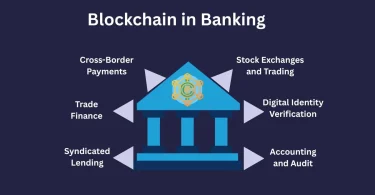As more businesses migrate to Cloud Computing, security becomes a top priority. Because of the vast volume of data saved in cloud storage, cyber-attacks may target it. These hazards, however, can be decreased with improved dependability and security measures. Cloud computing providers are significantly interested and active in making strategies and moving towards to ensure compliance with General Data Protection Regulation Protocols.
The Meaning of Cloud Security:
What is your foundational understanding of safeguarding the cloud?
Cloud protection, alternatively referred as cloud computing security, encompasses range of designed security protective measures to ensure the safety of cloud-based applications, infrastructure, and data. These measures encompass aspects such as authentication of users and devices, management of data and resource access, and ensuring data privacy.
Securing the Cloud: Safeguarding Data in the Age of Cloud Computing:
As more companies shift to Cloud Computing, security becomes a critical concern. Cyber Attacks may target Cloud Storage due to the large amount of data stored in them. However, with enhanced reliability and security measures, these risks can be reduced. Cloud Computing vendors are taking adequate measures to comply with General Data Protection Regulation (GDPR) standards.
Understanding Cloud Data Security Challenges:
Currently, data stored in the Cloud is not entirely safe, especially with small enterprises that may not provide adequate security. However, in the future, we can expect better protection against Cyber Attacks. Cloud Providers will offer improved security measures to prevent security breaches.
Addressing Unauthorized Data Access: Strengthening Cloud Security Measures:
Unauthorized data access poses a significant challenge in cloud security for enterprises if done with any strategy. While the cloud offers convenience for data storage and access, it also exposes data to various security risks. Breaches in cloud security can involve unauthorized access to user data, data theft, and virus attacks. To safeguard against these risks, businesses must prioritize granting access only to authorized individuals. Strengthening security measures, including robust authentication protocols and access controls, enables businesses to enhance the security of their cloud environments and reduce the likelihood of such breaches.
Implementing encryption for sensitive data in the cloud is another crucial aspect business can adopt to bolster security. By encrypting data, businesses ensure that only authorized users access and decipher it. This measure effectively safeguards data from unauthorized access and helps maintain its integrity. Additionally, employing backup protocols further contributes to data protection in case of unforeseen incidents.
The Advantages of Cloud Computing: User-Friendly and Promising for the Future:
Cloud computing is advantageous and user-friendly for both novice and experienced users, as well as for both old and new organizations. It allows for rapid and easy access to resources, making it ideal for experimenting with new ideas. Responses and feedback can be received quickly by organizations.
Automation is a major component of Cloud Computing, allowing for the creation of novel solutions. Low-code and no-code applications enable a broad variety of users to establish digital services. Scalability is simple with the Cloud, allowing for more users. Furthermore, Cloud Computing provides on-demand consumption pricing, free trials, and simple termination alternatives.
Summary:
Currently, data kept in the Cloud is not completely secure, particularly with small businesses that may lack proper protection. However, we might expect enhanced cyber-attack preventative measures in the future. Cloud providers will strengthen their security procedures in order to prevent security breaches.
Cloud Computing provides several benefits and is predicted to dominate the technological landscape in the future. It provides scalability, automation, and cost-effective solutions to enterprises. However, data security issues must be addressed in order to assure the safe storage and processing of sensitive data on the Cloud.




Leave a Comment